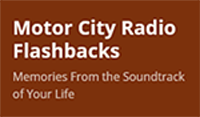 A Guest’s Essay: Robbie D. Reflects On His Amazing Time in Detroit, While on WCHB
A Guest’s Essay: Robbie D. Reflects On His Amazing Time in Detroit, While on WCHB
“Hey! Baby! This is me! Rockin’ Robbie D! I’m so bad I make flowers die I make babies cry I take candies from babies and give dogs rabies and if that ain’t bad the rain don’t fall and that ain’t all — biscuits ain’t bread!”
“ Bad, sad and just plain mad, the slang harangue of Rockin’ Robbie D is delivered in a keening, rapid-firing wail only recognizable to dogs, seismographs — and teenagers. Not that the kids understand it all; sometimes, when Mr. Hip Lip, as he is also called, “starts makin’ with the shakin’ ” on Detroit’s WCHB, the station runs a write-in contest called “What Did Robbie Say?” Nobody really knows. Least of all Robbie. The important thing is that Rockin’ Robbie and dozens more like him have given radio an advanced case of the screaming meemies . . . .”
Bad, sad and just plain mad, the slang harangue of Rockin’ Robbie D is delivered in a keening, rapid-firing wail only recognizable to dogs, seismographs — and teenagers. Not that the kids understand it all; sometimes, when Mr. Hip Lip, as he is also called, “starts makin’ with the shakin’ ” on Detroit’s WCHB, the station runs a write-in contest called “What Did Robbie Say?” Nobody really knows. Least of all Robbie. The important thing is that Rockin’ Robbie and dozens more like him have given radio an advanced case of the screaming meemies . . . .”
RADIO — TIME (pg. 81) October 27, 1967
How it all began for me . . . and then it was, 1966 . . . .
I arrived in Detroit to work at WCHB on May 4, 1966. I was eighteen years old. I did most of my growing up in Pittsburgh, Pennsylvania, in a middle class family and a middle class neighborhood. It was expected that I would go to college, after which I would wear a suit and tie and sit in a cubicle all day boring myself to death.
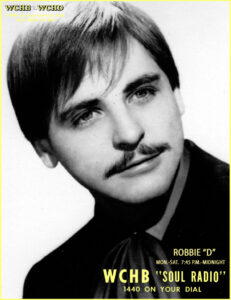
But that was not to be. From as early as I can remember I had a love for music, especially black or black-style music. And jazz was my favorite. I loved Nancy Wilson. While the other kids were outside playing ball, I was sitting in my room listening to Jazz, blues, and doo wop. And my favorite radio station was WAMO, Pittsburgh’s R&B station. In my childhood mind, I dreamed of working there one day.
That dream became a bit more real when I learned that WAMO’s most popular DJ, Porky Chedwick, was a white guy. I figured that if he could do it, so could I. Porky wasn’t just the most popular DJ at WAMO; he was the most popular DJ in Pittsburgh radio history — a radio legend. By the time I was in high school, I was on a quest. I aspired to be the “Porky Chedwick” of wherever I ended up. I spent a lot of time at the station and became friends with all the DJs. And I did whatever little grunt jobs they’d give me, just to be able to hang around and learn the art of radio. In time, they let me do a little part-time airwork, late at night and for free. Hell, I would have paid them for the opportunity.
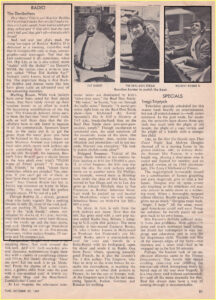
After a series of unfortunate circumstances I ended up in Harrisburg, PA and living with Jim Seville, one of my childhood friends, who at the time was the bass player for the Magnificent Men (probably the best white soul band ever). Having no other means of earning my keep I worked for the Mag Men, doing lighting and sound and as their road manager when they were on the road. But that was really going nowhere and what I really wanted was to be on the air and be the “Porky Chedwick” of wherever my determined ambitions would ultimately land me in radio.
So I created an audition tape and trotted it around to various radio stations without success. My big break came when I played my tape for Sonny Jim Kelsey at WOL in Washington, DC. Jim thought I was still a little rough around the edges but definitely had talent. He told me he had a friend in Detroit (DETROIT!) who was the program director at WCHB and he was looking for a new DJ. Sonny Jim said the man’s name was Bill Curtis and that I should give him a call and use his name as a reference.
I got the job but I had to audition live because no one believed anyone who looked like me could sound like me. After an incredibly stressful hour on the air the hot line at the station rang. It was Mr. Curtis telling me to relax because I got the job.
I was going to Magic Town!
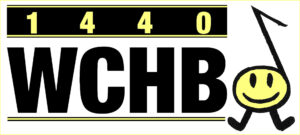 Now you may ask, why Magic Town? Because that’s where so much of the music I loved came from. And it was the home to Motown, the greatest record company in the world, and to Smokey Robinson, my favorite singer and song writer.
Now you may ask, why Magic Town? Because that’s where so much of the music I loved came from. And it was the home to Motown, the greatest record company in the world, and to Smokey Robinson, my favorite singer and song writer.
But Magic Town was about more than the music. In the 1960s Detroit was the fifth largest (and wealthiest) city in the world. It was booming. And it had two great industries: cars and music. There were sill racial problem in the 1960s in this country, but considerably fewer in Detroit. Sure, there were some white people who didn’t like black people, but there were also black people who didn’t like white people, and I knew some of them. But all-in-all, people in Detroit got along well together, and that was a good thing.
And this was important to me. My father was a very principled libertarian (as am I), and as such, he taught me to never put people in groups (Hispanics, blacks, Jews, Polish, etc.) but to see them as individuals. Each one a unique individual. Without being concerned with his skin color, religion or where his parents came from. That’s been a guiding principle all my life. People are people. Period.
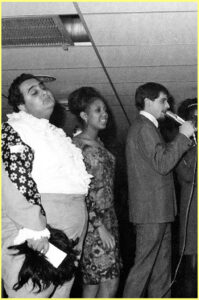
What I learned about treating people from my Father, early-on, always stayed with me. During the second World War, one of his jobs in the army was to train black recruits (the armed forces were still segregated at the time). When his class was completed, the recruits pooled their resources and had a special award made for him for being the only white man they had encountered who treated them with dignity and respect. That’s my dad. He was very proud of that. And needless to say, so am I. For he exemplified the person I should strive to be in life, especially in my formative years. As he was, then, I pride myself knowing I am like “that person” today.
Fast forward in time . . . .
After arriving in Detroit and having somewhat settled in, I had been on the air at WCHB for about three months and no one outside the station (except for a few record promoters) had laid eyes on me. There were two big and successful night clubs in Detroit at the time: The Rooster Tail and The 20 Grand, and WCHB produced a show at The 20 Grand every Wednesday and called it Soul Night. That’s where I would make my first public appearance.
I had already developed a strong following in Detroit radio and about 1,200 people showed up to see Mr. Hip Lip, the Man With the Plan, the Master. I was dressed for the occasion, silk and wool and tailored to the bone. Waiting stage right, I was about as nervous as a whore in church — there was no guarantee they were going to like me. When I got my cue I walked to the mic, center stage.
The audience was hostile. There was a lot of noise and none of it was good. In a sudden panic, I looked offstage where Bill Williams, our morning drive DJ, was standing. In a stage whisper, he said, “Just do what you do on the air.”
So I did.
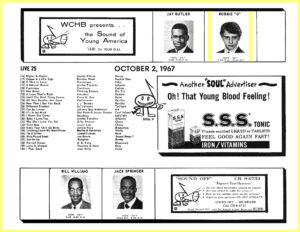 And suddenly, the bad noise from the audience turned good. They were shocked, amazed. But they liked me. I guess they were surprised. When the other DJs at the station referred to me as their “blue-eyed soul brother” no one thought that meant melanin deficient, as well.
And suddenly, the bad noise from the audience turned good. They were shocked, amazed. But they liked me. I guess they were surprised. When the other DJs at the station referred to me as their “blue-eyed soul brother” no one thought that meant melanin deficient, as well.
Then came the second half of a night I’ll never forget. The act I was supposed to introduce happened to be good friends of mine from back in Pennsylvania:
The Magnificent Men, with the #2 record in Detroit at the time, “Peace Of Mind”. Seven white guys with Beatle haircuts. They got the same reception I did. But they did the same thing I did. They opened with James Brown’s boo-Ga-loo and in seconds the crowd were on their feet and cheering. And before their show was over it took about a half-dozen rent-a-cops to drag women off the stage.
So was this a victory of some kind? No. It was just what I had believed all my life. Soul has no color. It was proof that people of various shades could just get together, anywhere, and have themselves a real good time.
Memories. Most good, a few bad . . . .
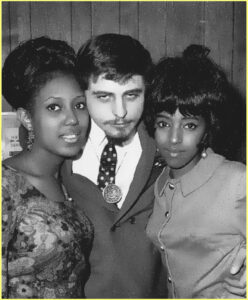
And for the next two and a-half years it was that way everywhere I went. Just people having fun. In addition to my weekly appearances at The 20 Grand, I also produced a show of my own at The Pumpkin in Westland. And I proved the impossible was not only possible, but easy. I was warned that there would eventually be trouble because the audience was about fifty percent white and fifty percent black. Adding to that, both of my house bands were white and all the guest singers were black. To quote Gomer Pyle, “Surprise, surprise!” In the hundred or so shows I did there, there was only one fight and it was two white guys fighting over a girl. And people didn’t just hang out with their “own kind”. Everybody mingled and had a great time.
The little things I was able to accomplish in Detroit were a manifestation of what I’ve always believed. While people have some superficial differences, underneath, we’re all the same. My way of thinking, always was, let’s all get along and have a good time together.

I finally got the ax from the station after two and a-half years, not because of a drop in ratings, but because of a new program director and a lot of “behind the scenes” shenanigans. But I wasn’t bitter. I went on to be the program director of a station in Pittsburgh and an on-air personality at a station in Philadelphia.
Shared moments, a few wonderful memories . . . .
One of the times I emceed the Motown Review at the Fox Theater, my parents were planning a trip to Detroit. I acquired tickets for them and they were happy to attend. About halfway through the show I asked that the house lights be turned on because I wanted to introduce my parents. I asked them to stand, they did, and with the resounding applause, the audience did, too!
Most everybody, at least from our generation, still remembers Tony Orlando and Dawn. Tony, Telma Hopkins, and Joyce Vincent Wilson (both of Dawn fame) were special, dear friends of mine. Tony Orlando and Dawn were doing a two week engagement at the Holiday House in Pittsburgh, and at the time, we spent a lot of time together. One night, I was able to get my parents great seats up front, along with backstage passes. After the show, an evening of warm affection and admiration started to develop between Telma and my parents.
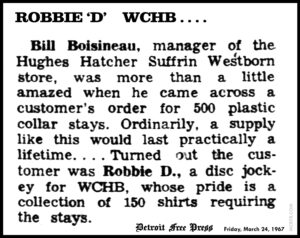
For a year, Telma and I were the best dating couple on earth. It was the most magical moment and time having her in my life. While I decided to leave radio and pursue other interests, Telma has stayed in the entertainment business and has done well for herself. Tours, television shows, film appearances, and more tours. Her most recent engagement was earlier this year. To her credit, throughout her career she’s managed not to get caught up in all the Hollywood nonsense, and has always kept her personal life very private. Today, we’ve remained friends over the years and I still have the respect, admiration and love for her, and I always will.
Introducing soul legends on stage . . . .
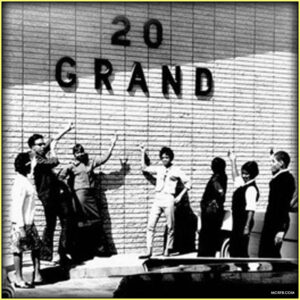 In Detroit, many of the greatest soul acts of the 1960s, aside of Motown, also graced the stage at Detroit’s legendary “soul’ venue, The 20 Grand. Yes, it was more than just showcasing our Motor City R&B talent. Some of the many acts I remember performing there were James Brown, The Righteous Brothers, Joe Tex, The Magnificent Men, Sam & Dave, The Drifters and many, many more.
In Detroit, many of the greatest soul acts of the 1960s, aside of Motown, also graced the stage at Detroit’s legendary “soul’ venue, The 20 Grand. Yes, it was more than just showcasing our Motor City R&B talent. Some of the many acts I remember performing there were James Brown, The Righteous Brothers, Joe Tex, The Magnificent Men, Sam & Dave, The Drifters and many, many more.
This is hard for many people to understand or accept, but there’s a reason it’s called show BUSINESS. Because it is a business, and what someone does onstage is the product. One of the best compliments you can give someone exiting the stage after their performance is, “great act”. So whether I was working at the 20 Grand, or elsewhere, I loved and admired many, many of the entertainers I was blessed having introduced to many Detroit audiences from the stage, and I introduced so many!
But one stood out. Otis.
One night and after I had introduced Otis Redding and walked back offstage, for the first and only time in my career, tears came to my eyes. Nobody ever affected me like Otis did. I think it was because his performance was part act, and, part REAL. And I’ll never forget the night his plane went down in a lake near Madison, Wisconsin. It was December 10, 1967. Losing Otis, that hit us pretty hard. It was very personal to me and Telma. His sudden death was a shocking, sad moment all of us felt at that time. And yet, 57 years later, his legacy endures. Still lives on.
Final thoughts and comments . . . .
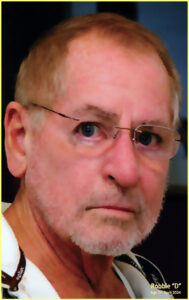
I guess the most important thing I can say about that whole experience, is, that soul has no color. It’s a state of mind. I can eat at Morton’s Steak House or dine at a soul food joint and have just as much enjoyment being at either place. It’s about embracing different cultures, people, places and surroundings and enjoying time in their company.
My favorite music?
I love it all (except bluegrass, which is one song with 5,000 verses). At 77 years years of age, I’ve been able to experience all kinds of music and develop an appreciation for a lot of it. But my favorite is — and always will be — 1960s R&B. That along with the Doo-Wop music I grew up with. From the Doo-Wop era, my favorite is “I Only Have Eyes For You” by the Flamingos. I have the notes for that song in a frame on a wall in my home.
But more than anything else I’ve done or anywhere else I’ve been, I will always treasure my stay in the Motor City when I was on WCHB in the 1960s. Thank you, Detroit!
Truly it was, and will always be to me, Magic Town.
Sincerely,


![]()
![]()
![]() This site would like to express a heartfelt THANK YOU to J. Paul Henderson for graciously sharing his personal memories and recollections of his experiences in Detroit, particularly during his time on WCHB.
This site would like to express a heartfelt THANK YOU to J. Paul Henderson for graciously sharing his personal memories and recollections of his experiences in Detroit, particularly during his time on WCHB.
Two years ago, J. Paul Henderson, formerly known as Robbie D., left a comment on a WCHB post that was featured on this website. Recently, Motor City Radio Flashbacks contacted and invited him to write a guest essay about his tenure at WCHB, which at the time, was Detroit’s only black-owned radio station. We are thrilled that he accepted the invitation.
Today, J. Paul Henderson resides in Mooresville, North Carolina.
![]() ON YOUR PC? To fully appreciate all featured photos/images in this presentation click over each image and open to second window. Click image anytime to return to NORMAL image size.
ON YOUR PC? To fully appreciate all featured photos/images in this presentation click over each image and open to second window. Click image anytime to return to NORMAL image size.
Click your server’s back button to return to MCRFB home page.
ON YOUR MOBILE DEVICE? Tap over images. Open to second window. “Stretch” images across your device screen for expanded, digitized view.
![]()
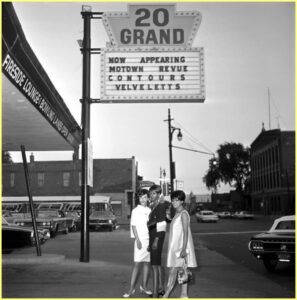

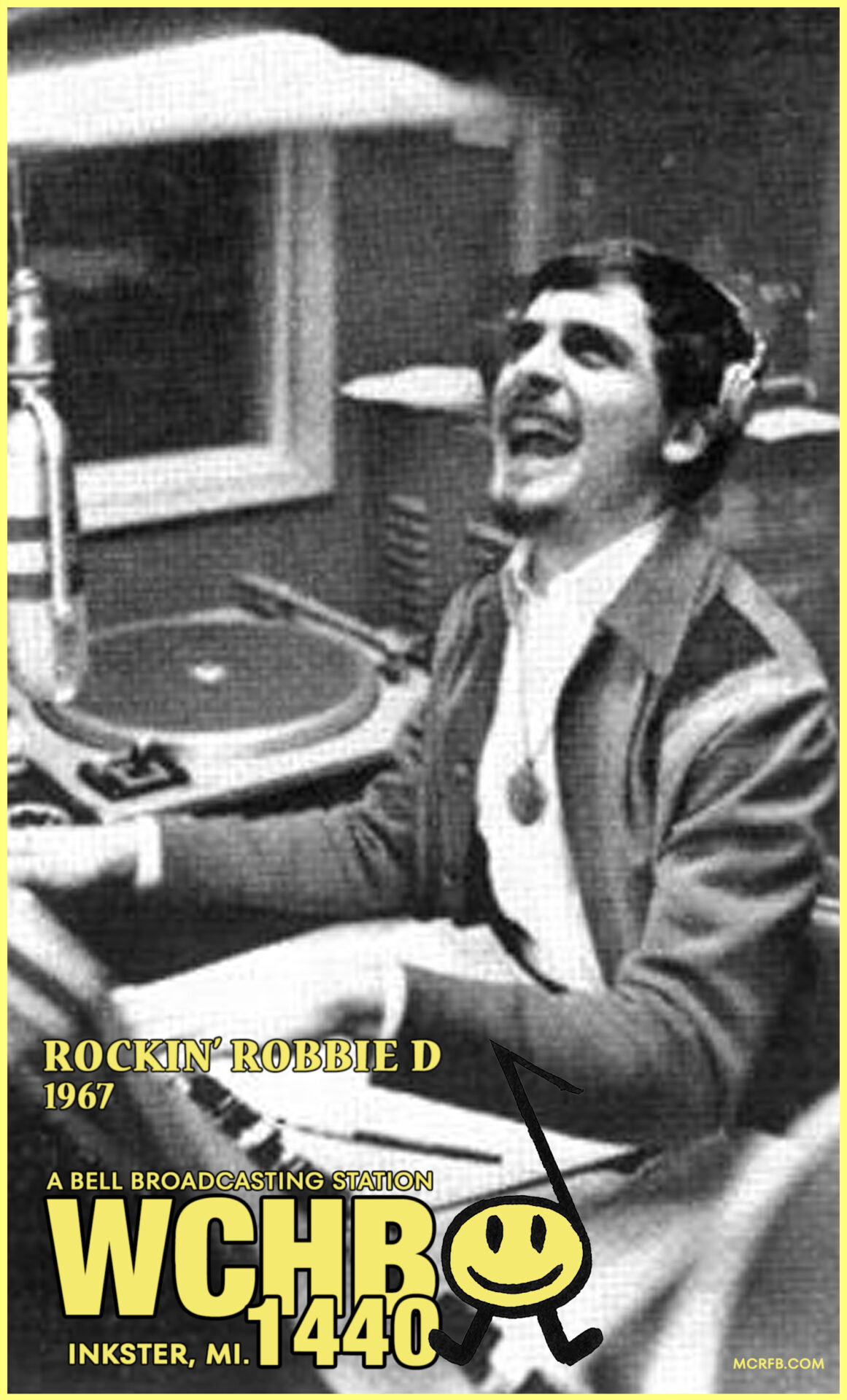


It was a pleasure to read Robbie D.s essay. He has a very interesting story. I was a listener to Detroit Radio, but I was more inclined to listen to WCHD or WGPR during this period as they had much better signals where I lived.
That aircheck sounded like it was recorded from a less than optimum area; WCHBs signal had some real bad null areas.
James: Thank you for your thoughtful comments. During the 60s, WCHB was the #1 station in Detroit and I had the highest ratings in the history of Detroit radio. That’s amazing for a station that couldn’t even be heard in half the county.
To remain on the air for 24 hours, the FCC imposed horrible regulations and signal restrictions on the station and the requirement that the signal strength be reduced to 500 watts after sunset. Our nighttime signal was very eccentric and required ten towers to accomplish. At night WCHB was nearly impossible to hear on the east side of Detroit, but could be heard in Erie, Pennsylvania and Buffalo, New York. And you’re right — WGPR and WCHD were much easier to hear (because they were FM) and WCHD played great jazz.